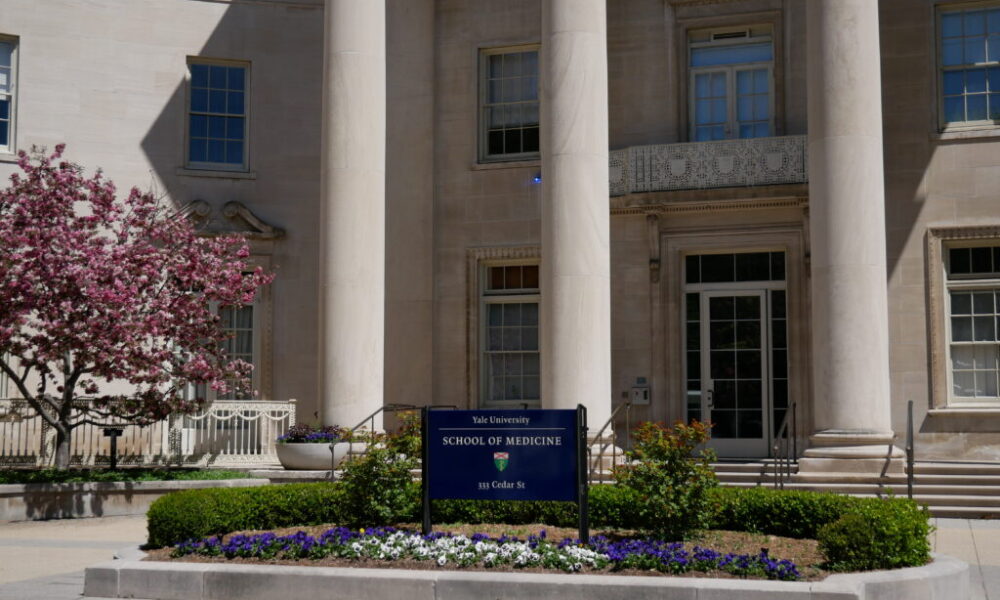Yale University is set to establish a new center dedicated to exploring strategies for healthy aging among patients living with HIV. The initiative, known as the Aging Well with HIV Through Alcohol Research and Risk Reduction and Education (AWAR3E) Center, has received a substantial five-year grant from the National Institute on Alcohol Abuse and Alcoholism.
Leading the center are esteemed professionals: Amy Justice, a professor of internal medicine and public health; Julie Womack, an associate professor of nursing; and Vincent Lo Re, a professor of medicine and epidemiology at Rutgers University. The center aims to address the growing population of older adults living with HIV, a demographic that faces increased risks for various medical conditions, including cancer, cardiovascular disease, and diabetes.
In an interview, Justice emphasized the significance of the center’s mission: “There are more people aging with HIV now than ever before, thankfully, because we have therapy to suppress the virus and extend people’s life expectancy. However, they are subject to a greater risk of medical conditions associated with aging.” This underscores the urgency of understanding the intersection of aging and HIV.
The AWAR3E Center builds upon the foundation laid by the Veterans Aging Cohort Study (VACS) Consortium, which Justice originally established to analyze the impact of alcohol use on aging in both HIV-infected and uninfected individuals. VACS has accumulated over two decades of longitudinal data, representing as many as 13.5 million individuals from the national electronic health record system.
Justice noted that the team has devoted years to mastering the interpretation of VACS data, developing a network of experts across various health fields to support their research. Womack has focused on preventing falls and fractures in aging individuals with HIV, while the team includes specialists in liver disease, neurological conditions, heart disease, and cancer.
Womack described the collaborative effort involved in preparing the grant application, highlighting the importance of teamwork. “To get each draft finished on time, everybody on the team had to agree to a timeline and meet regularly throughout the grant’s development,” she said. The process began in January 2024, with each team member drafting their sections, followed by collective discussions to refine the proposal.
One of the center’s primary objectives is to assess the impact of stressors, such as alcohol use and socioeconomic deprivation, on premature aging through chronic inflammation. Justice pointed out that many factors, including obesity, poor diet, lack of exercise, substance use, and stress, contribute to chronic inflammation, which is linked to adverse aging effects in individuals living with HIV and others.
Research projects will investigate biological markers of stress and inflammation in these patients. Even those whose HIV is well-managed may have residual traces of the virus, referred to as viral reservoirs, which the study aims to determine whether they contribute to stress and inflammation.
Another important aspect of the research will explore how socioeconomic disadvantages relate to aging-associated health issues, such as falls, fractures, dementia, and hospitalization. Lo Re expressed the center’s commitment to advancing research and mentorship, stating, “One of the big benefits of our new center is that it will nurture significant research in alcohol-HIV/AIDS, provide valuable mentorship to early-stage investigators, and attract new scientists to this field.”
Womack also shared her enthusiasm for the center’s focus on disseminating research findings. “One of the core groups within this grant is tasked with figuring out how to effectively share our findings,” she noted. The team aims to ensure that the outcomes of their research reach patients, clinicians, providers, and organizations involved in HIV care.
As of 2022, approximately 1.2 million people are living with HIV in the United States, according to estimates from the Centers for Disease Control and Prevention. The AWAR3E Center’s work will be instrumental in shaping future health interventions and improving the quality of life for this growing population.







